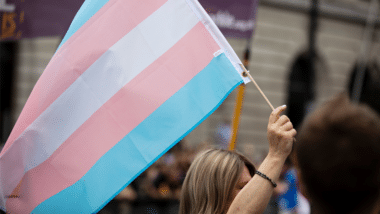The Women and Equalities Committee’s demand for people to change legal sex by self-declaration, shows it is out of touch with the general public, The Christian Institute has said.
In a report published on Tuesday, the Committee said the requirement for people to have lived as if a member of the opposite sex for two years should be scrapped “immediately”, along with the need for those wishing to change legal sex to be medically diagnosed with gender dysphoria.
The cross-party MPs favour “moving the process closer to a system of self-declaration”, by allowing people to make the change simply by signing a legal document.
No support
The Institute’s Simon Calvert said the recommendations did not have public support.
“The Women and Equalities Committee is totally out of touch on this. The Government has already rejected calls for self-ID, and the public is increasingly against it.
“Polling last week in Scotland probably reflects the position across the UK as a whole. It found that 71% of the public think people wishing to change gender should be assessed by expert medical professionals not allowed to simply self-ID.
“Abandoning what safeguards there are in the Gender Recognition Act would jeopardise the safety of vulnerable young people. The rapid rise in young people identifying as transgender is well known. The 3,000% increase in gender dysphoria referrals to the Gender Identity Clinic is only the tip of the iceberg.”
‘Trapped’
Mr Calvert continued: “The requirement to live in the ‘acquired sex’ should be retained, and even extended, to protect vulnerable individuals. It is crucial to give enough time for genuine reflection and reconsideration. Some transgender people now feel trapped in the opposite sex, and resent the fact that they were affirmed too quickly.
“It often takes years for people to decide to reverse their sex change, not least because of the ‘honeymoon phase’ that often follows social or medical transition.”
He also explained that the system of self-declaration is “a danger to women”, which “undermines female-only spaces”, citing how it has been abused in the criminal justice system.
“The prison service’s use of self-identification meant a legal and physical male – a known sex abuser – was placed in a women’s prison, enabling him to commit two sexual assaults. This case encapsulates the risks of a system without the safeguards in the 2004 Act.”
Non-binary
Other proposals put forward by the Committee include:
- plans to allow for legal recognition of people who identify as ‘non-binary’ – neither male nor female – to be “brought forward during this parliament”
- removing the requirement for people wishing to ‘change sex’ to obtain spousal consent if they are married
- automatically annulling marriages in certain circumstances
Women and Equalities Committee again pushes for gender self-ID
Civil servants received ‘ideological and unscientific’ trans training
‘Stonewall’s fingerprints’ found all over Scots civil service recruitment process
Stonewall Ambassador heads up new diversity training scheme for BBC


